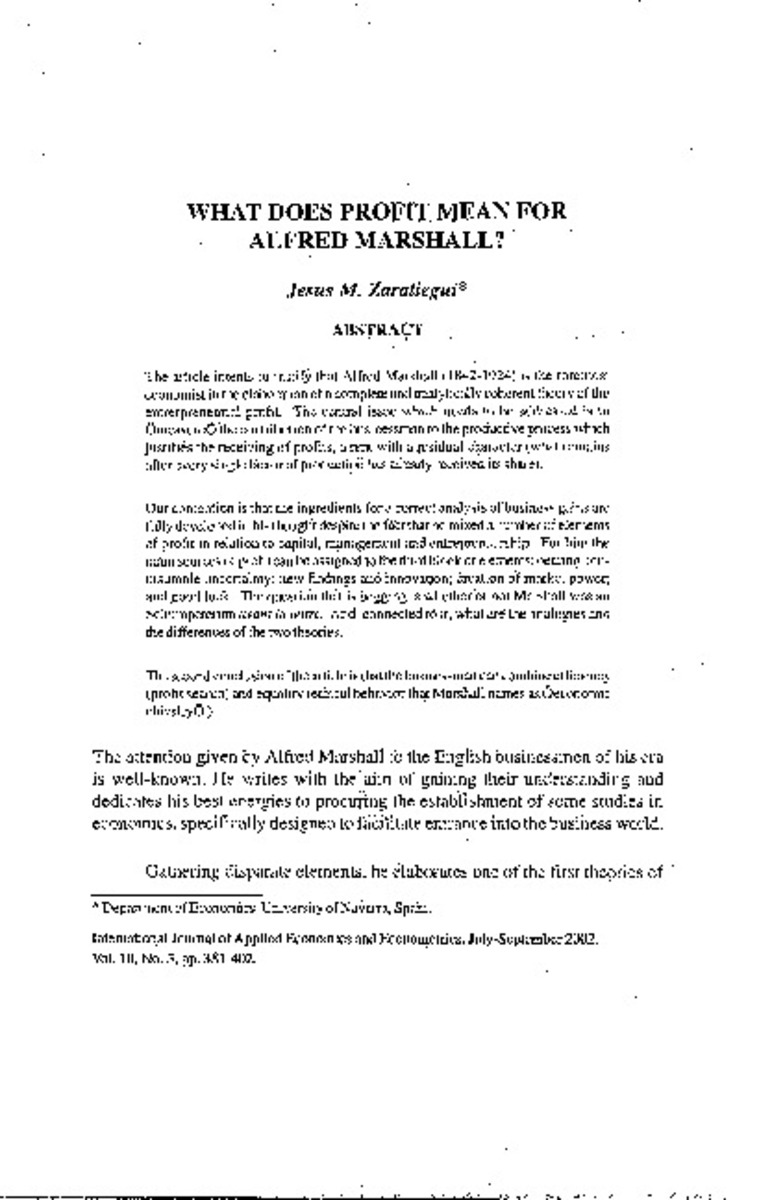Full metadata record
| DC Field | Value | Language |
|---|---|---|
| dc.creator | Zaratiegui, J.M. (Jesús M.) | |
| dc.date.accessioned | 2010-02-24T12:37:57Z | - |
| dc.date.available | 2010-02-24T12:37:57Z | - |
| dc.date.issued | 2002-07 | - |
| dc.identifier.citation | International Journal of Applied Economics and Econometrics, July-September 2002, Vol. 10, Nº 3, p. 381-402 | es_ES |
| dc.identifier.issn | 0971-8281 | - |
| dc.identifier.uri | https://hdl.handle.net/10171/6286 | - |
| dc.description.abstract | Alfred Marshall (1842-1924) is the foremost economist in the elaboration of a complete and analytically coherent theory of the entrepreneurial profit. The central issue addressed is to ‘measure’ the contribution of the businessman to the productive process which justifies the receiving of profits, a rent with a residual character (what remains af¬ter every single factor of production has already received its share). Our contention is that the ingredients of business gains are fully developed in his thought despite the fact that he mixed a number of elements of profit in relation to capital, management and entrepreneurship. For him the main sources of profit can be assigned to the third block of elements: bearing non-insurable uncertainty; new findings and innovation; creation of market power; and good luck. The businessman can combine ef¬ficiency (profit search) and equality (ethical behaviour that Marshall names as ‘economic chivalry’). | es_ES |
| dc.language.iso | eng | es_ES |
| dc.publisher | EBSCO Publishing | es_ES |
| dc.rights | info:eu-repo/semantics/openAccess | es_ES |
| dc.subject | Alfred Marshall | es_ES |
| dc.subject | Entrepreneurship | - |
| dc.subject | Profit | - |
| dc.title | What Does Profit Mean for Alfred Marshall ? | es_ES |
| dc.type | info:eu-repo/semantics/article | es_ES |
Files in This Item:
Statistics and impact
Items in Dadun are protected by copyright, with all rights reserved, unless otherwise indicated.






